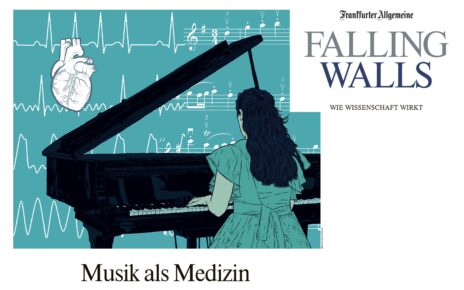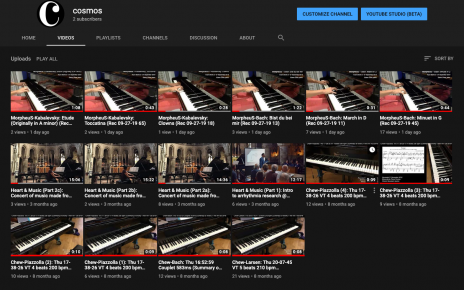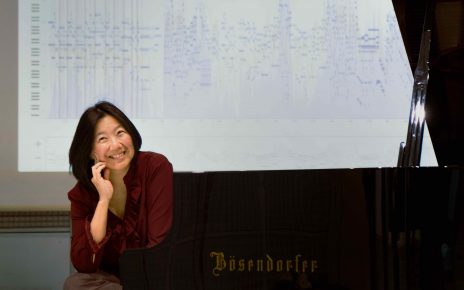To apply, visit the CNRS Employment Portal at https://bit.ly/2F6a88T. The ad will be live from 7–28 Sepember 2020.
Reference : UMR9912-ELACHE-001
Workplace : PARIS 04
Date of publication : Monday, September 07, 2020
Type of Contract : FTC Technical / Administrative
BAP : Informatique, Statistiques et Calcul scientifique
Emploi type : Ingénieur-e en ingénierie logicielle
Contract Period : 18 months
Expected date of employment : 1 November 2020
Proportion of work : Full time
Remuneration : €2151 to €2694 monthly gross depending on experience
Desired level of education : 5-year university degree
Experience required : 1 to 4 years
Mission: Applications are invited for an engineer to join the team of the ERC Proof of Concept Project HEART.FM: Maximizing the Therapeutic Potential of Music through Tailored Therapy with Physiological Feedback in Cardiovascular Disease. The work will take place between the Sciences and Technologies of Music and Sound (UMR9912-STMS) Laboratory at IRCAM, in the center of Paris, and at St. Bartholomews (Barts) Hospital / University College London, in Central London. The engineer will be responsible for developing a mobile app for the acquisition of physiological signals to guide the selection of music to lower blood pressure, and participate in the conducting of studies evaluating the app when by used by healthy individuals and by hypertensive patients.
Activities: The mobile app creation will include the following steps:
• identifying and evaluating the suitability of existing sensors for blood pressure currently on the market, and possibly also sensors for electrocardiographic signals, respiration, and pulse oximetry;
• developing a mobile app interfacing with the sensor(s) to acquire the physiological signals to guide music selection;
• integrating relevant physiological and music signal analysis software into the system;
• designing and implementing algorithms for the music selection based on the physiological feedback;
• participating in the curation of the music collection and extraction of relevant music features; and,
• developing an intuitive user interface for users to interact with the app.
A development goal will be to make the app ready for large-scale deployment in randomized, controlled research trials that can establish music-hypertension cause-effect relationships for healthy individuals as well as hypertensive patients.
The app should also benefit the research community by offering a crowdsourced portal for collecting research data in cardiovascular disease and music-based preventative therapies.
As a proof of concept, the project will also be exploring commercialization and market solutions.
Skills: Candidates must:
– be knowledgeable about mobile app development
– have experience in the design of graphical user interfaces with interactive components;
– have prior experience with physiological signal and/or music analysis
– be willing to master the necessary software tools for physiological signal and music analysis;
– be able to implement or modify existing algorithms for physiological signal and music analysis;
– be skilled at designing scalable software and databases;
– be able to analyse needs and draw up technical specifications;
– have an affinity for working in a team and strong project management skills; and,
– be fluent in written and oral English.
In addition, the following skills are a plus:
– have experience in cross platform development (e.g. React Native),
– have launched an app, preferably on both iOS and Android platforms); and,
– have full-stack development experience.
Work context: The research will be conducted in Paris at the UMR 9912 STMS (Sciences and Technologies of Music and Sound) Laboratory and in London at St. Bartholomew’s (Barts) Hospital and University College London.
The STMS Laboratory is a joint research unit of the CNRS (Centre national de la recherche scientifique), IRCAM (Institut de Recherche Coordination Acoustique/Musique), Sorbonne University, and the French Ministry of Culture. STMS is located at IRCAM (1 place Igor-Stravinsky, 75004 Paris), in the heart of Paris. IRCAM is a world renowned center for contemporary music production; it is organizationally linked to the Pompidou Center. Facilities include music studios at IRCAM, and researchers have access to IRCAM’s software, computing facilities, recording equipment, and media library, as well as the CNRS and Sorbonne University’s online libraries.
In London, the research location will be at St. Bartholomew’s (Barts) Hospital, the oldest hospital in Britain located at West Smithfield in Central London, and University College London (Gower Street, London, WC1E 6BT). Barts Heart Centre is the largest specialized cardiovascular center in Europe, and Barts Health NHS (National Health Service) Trust, one of the largest NHS trusts in the country, is a leading healthcare provider in Britain. The UCL Institute of Cardiovascular Science has a reputation for being a world-class centre of excellence in pioneering novel, integrative strategies in preventative and therapeutic cardiovascular medicine.
Constraints and risks: The work will involve frequent travel between the two research sites; and will require an ability to spend extended time at the London facilities for the evaluation studies. Candidates should be aware that the offices of most of IRCAM’s research teams are in an underground building with a central skylight.
Additional information: Applications must include at the minimum a detailed CV containing at least two references (people who may be contacted) and pointers to prior work and other experiences relevant to this position. The closing date for sending applications is 28 September 2020. Interviews will take place in the days following the deadline. The expected start date is 1 November 2020 or later. The salary depends on the candidate’s qualifications and professional experience.
• Der Spiegel: Klänge Fürs Herz / Sounds For The Heart (English Translation)
• CNRS INS2I News: HEART.FM, Au Cœur De La Musicothérapie / At The Heart Of Music Therapy (English Translation)
• ERC: Press Release about PoC 2020 first round




